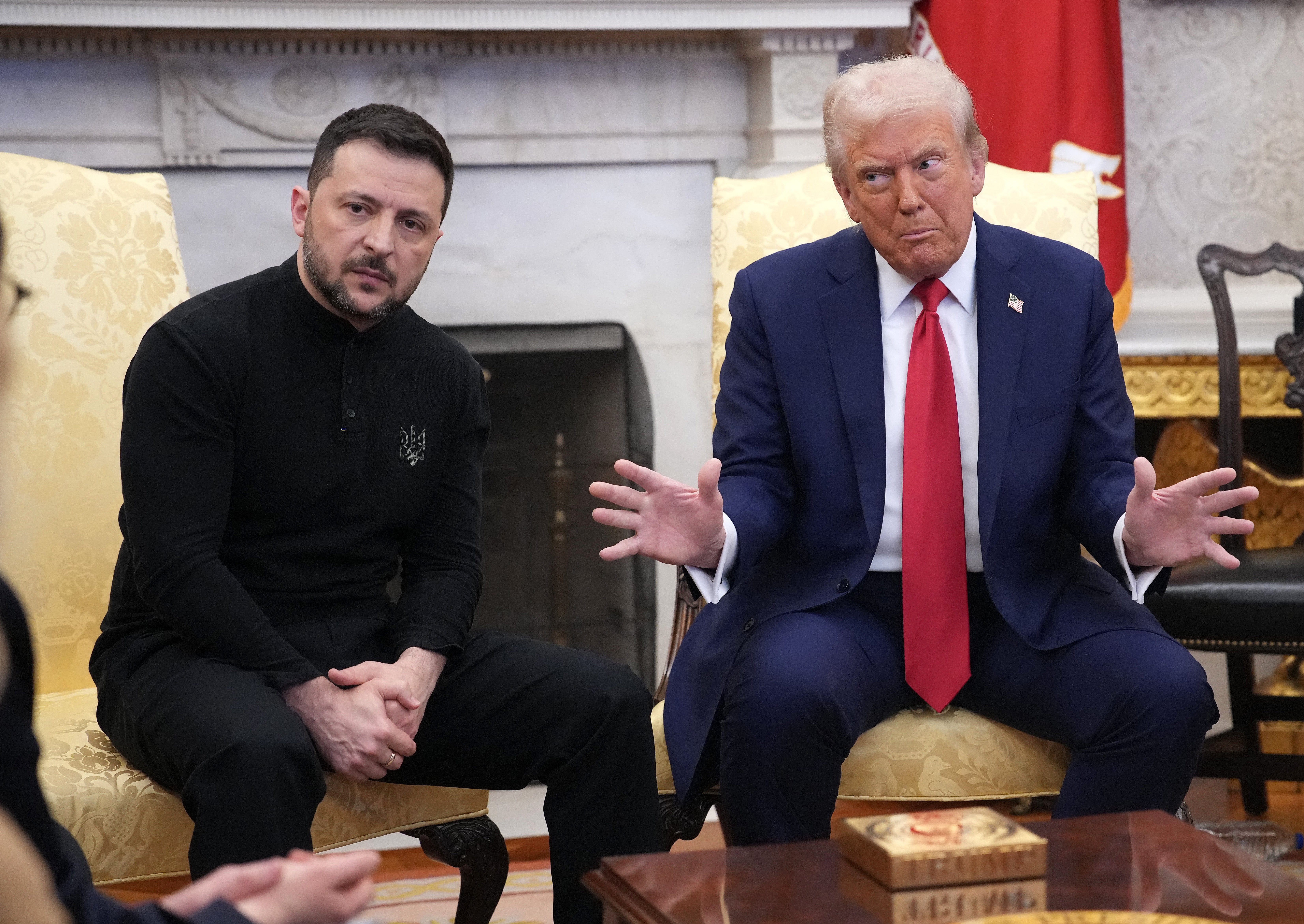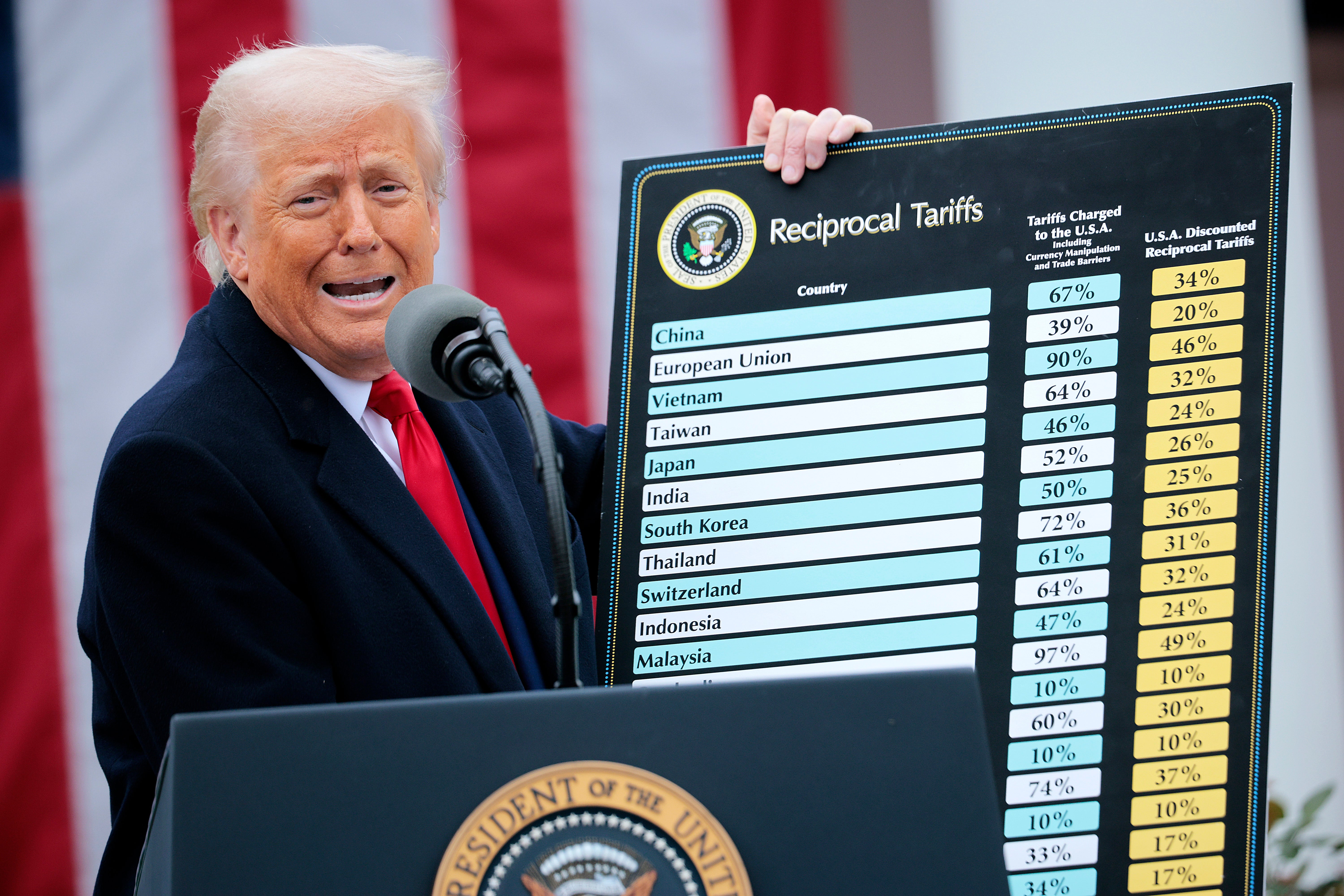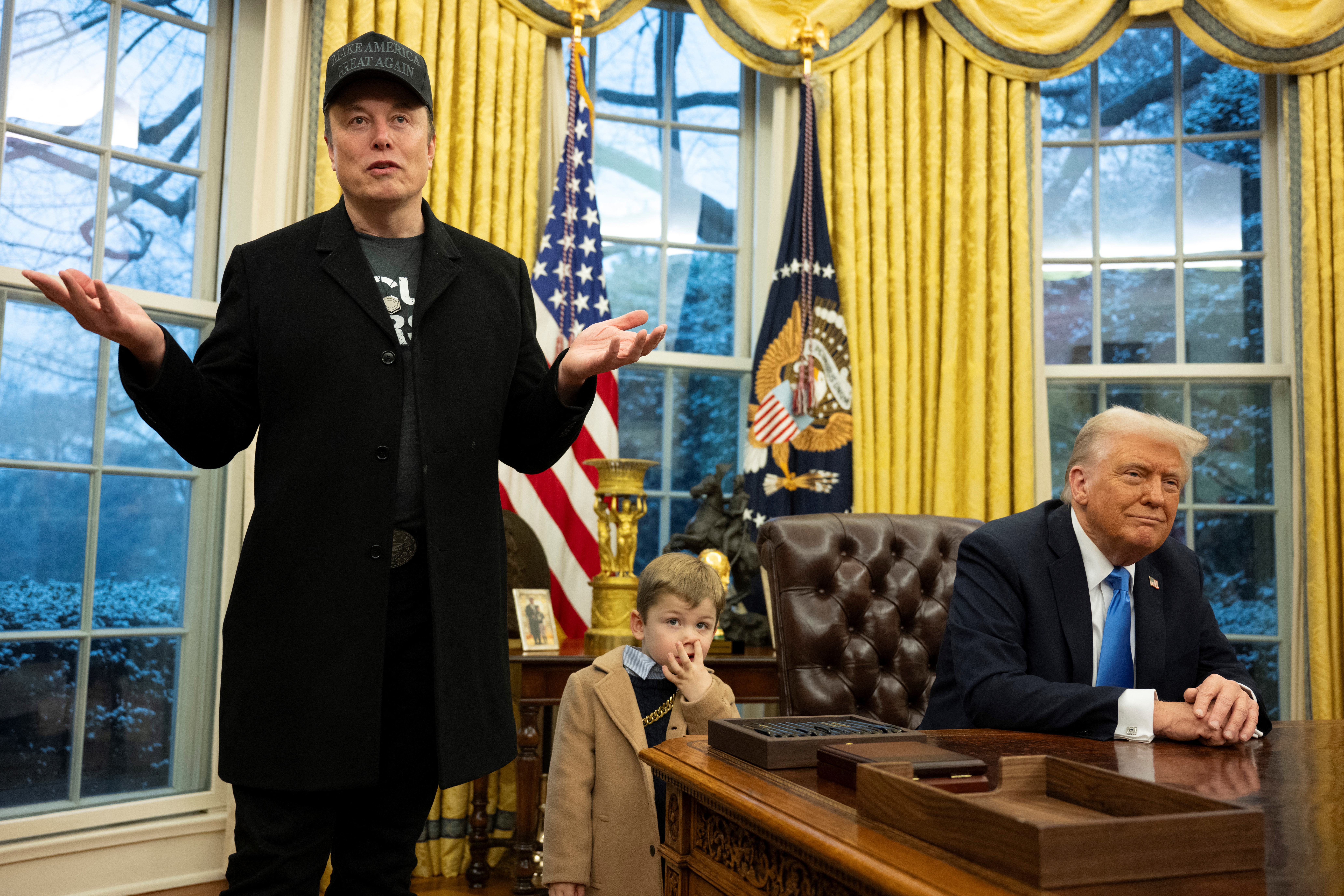It has taken 100 days for Trump to undo 100 years of progress
The American century is over and we’re heading toward something new, believes author and commentator Gabriel Gatehouse. Here, he considers the precise moment that will go down in history as changing the nation’s story forever and whether Trump will be remembered as America’s first ‘king’

It was Franklin Delano Roosevelt’s administration that first used the arbitrary yardstick of 100 days to measure its early achievements. In the teeth of the great depression, FDR rammed 15 major pieces of legislation through Congress, acts that became the backbone of the New Deal. He supercharged the power of the federal government and used it as a defibrillator to shock the American economy back to life. Roosevelt’s first 100 days were a whirlwind.
The New Deal – and the Second World War – set the stage for the rise of America as the world’s pre-eminent superpower. For almost the next 100 years, the United States bestrode the world as an unrivalled global behemoth of liberalism, both economic and social. Somewhere in these first 100 whirlwind days of Trump’s second term, it feels like that era ended.
Did the Roman citizenry of the late 5th century realise that Rome had fallen? Sure, they would have been cognizant that, in AD476, an enfeebled emperor had been deposed by a barbarian rabble rouser of German descent who had little regard for the political traditions of the once-great empire. But the senate continued to meet, under the auspices of the new ruler who called himself a king and contented himself with a domain that constituted a fraction of the empire’s former reach. Italy first.
When exactly was it that the American century expired? People will argue about the precise moment. Was it the Zelensky meeting in the Oval Office? It’s a credible candidate. For eight decades, the United States had been the ultimate backstop, the guarantor of peace in Europe. In the capitals of Europe, a sickening realisation dawned: America no longer has our backs.
Trump had invited an embattled European leader – a supposed ally – into his office for a public hazing. He and his vice-president, JD Vance, conceded every one of Vladimir Putin’s bitter and twisted gripes about Ukraine: Volodymyr Zelensky, the country’s democratically elected president, was a “dictator” whose ambitions to join Nato were a futile fantasy aimed at constricting Russia’s rightful control over its territorial sphere. Now, in front of the TV cameras, they held Zelensky’s head down the metaphorical toilet bowl.
What were they demanding in return for relief? Some concession that would enhance America’s power and influence in the world? No. Like petty gangsters thirsty for unearned respect, they wanted Zelensky to get down on his knees, say “thank you”, and wear a better suit. Theodore Roosevelt, FDR’s cousin, advocated that a statesman should “speak softly and carry a big stick.” This was the opposite. America had won the Cold War, defeated the Soviet Union, only to concede its power, and the principles of territorial integrity and the rule of law, to a much weaker adversary: Putin’s Russia.
Or perhaps it was the tariffs fiasco that marked the beginning of the end. America’s post-war supremacy, its unrivalled prosperity, had been built on the principle of economic dynamism in a global free market. With a series of confused and ill-planned announcements, Trump ripped the pistons out of the engine. In an act he dubbed “Liberation Day”, as if the United States had been living under the yoke of some foreign oppression, he tore up the global economic order America itself had created.
These acts, along with a half dozen or so other screeching handbrake turns (the dismantling of USAID abroad, the assaults on academic independence, the judiciary, the Federal Reserve, healthcare research, and the Doge-gutting of government institutions at home) mark an unprecedented retreat from dominance and leadership on the world stage. The American century is over. We’re heading toward something new.

Startling as these turns of events may seem, America has reached this point not because it was all going so well but because it was all going so badly. As we look out the window of our history express train and watch Pax Americana receding into the distance, we can see that “peace through strength” – the big-stick doctrine – has not been working well for a while. Afghanistan and Iraq exposed the weakness of American power despite its military might; out of Obama’s abandoned “red lines” in Syria, Vladimir Putin emerged emboldened for war in Ukraine.
Likewise, on the economic front, the financial system that America built has produced a highly uneven prosperity. It has powered the United States to global dominance in corporate power and technological innovation, while leaving vast swathes of the population to stagnate, struggling with vanishing jobs on wages that haven’t increased in decades. A bigger and bigger slice of the economic pie has been funneled into an ever-shrinking financial and corporate elite. This trend looks likely to accelerate exponentially in the coming years, as AI technology rips through the economy.
Donald Trump is waging a battle between political and economic power. To the old establishment, his assaults on the very institutions that made America great looked like an unprecedented act of self-harm. But to his supporters in the Make America Great Again movement, it looks like a fightback, a long-awaited crusade for justice.
The historian and political scientist Benedict Anderson described nations as “imagined communities”, societies that coalesce around a shared set of myths and legends. Once upon a time, the story of America, its common dream, was of a brave new world that helped itself by helping others. Now the “huddled masses”, invoked in verse at the base of the Statue of Liberty as the very foundation of America, have become an existential threat, an “invasion at the southern border”. The story of America has been torn in two. When an imagined community loses its shared story, when a nation is no longer bound by a common narrative or even factual frame of reference, how long can it survive?

This time eight years ago, 100 days into Donald Trump’s first term in office, his election in 2016 was seen as a freak weather event. The overriding questions focused on how to weather the storm. Even though Trump’s first administration featured many of the same themes as the sequel (working title: “Trump 2: The Revenge of Maga), the original movie felt like an inexperienced director trying out a new genre. Trump 1.0 was surrounded by doubters and naysayers determined to undermine his vision. Some of the survivors of his first administration even came to believe he was a fascist.
This time it’s different. Trump 2.0 may feature a similar cast of tragi-comic, inept characters (a defence secretary plucked from the Fox News graveyard slot who has trouble with his messaging apps), but now their chief character trait is loyalty to the boss. Plus, they’ve had four years to prepare for power. What were once mere slogans (“America First”, “Drain the Swamp”) have been transformed into executive orders that play out in thrilling action sequences (tariffs, Doge).
Even if the Trump movement burns itself out (a recent poll suggests voters are less than impressed with his chaotic start) and enough of America’s institutions survive for “normal” service to resume in four years’ time, it’s likely the rest of the world will have moved on. In defence and security, Europe is searching for ways to extricate itself from reliance on the United States; in the absence of reliable and predictable US leadership, the global economic system will likely adapt and take on different forms.
From almost any conceivable aspect, America at the end of Trump’s second 100 days in office looks like the mirror image of Franklin Delano Roosevelt – a nation on the downswing, snatching defeat from the jaws of victory. But Trump and Roosevelt might have one odd factor in common. FDR is the only president to be elected to more than two terms in office (he ran and won in four consecutive elections, the last only cut short by his untimely death in 1945).

In 1951, Congress passed a law limiting presidents to two terms of four years. After all, this is a country founded in a revolt against a monarch. But last week, amid speculation he might run for a third term, Donald Trump’s online store began selling baseball caps decorated with the words “Trump 2028”: a plausibly deniable wink to a move that would surely signal the official end of the Republic. And on his 100th day in office, it is something he has refused to rule out, admitting that such a move would shatter democratic convention. Speaking to The Atlantic, Trump said: “That would be a big shattering, wouldn’t it? Well, maybe I’m just trying to shatter. It’s not something that I’m looking to do. And I think it would be a very hard thing to do.”
It's possible that America’s retreat from its founding principles will accelerate the rise of China. If this happens, a global superpower that went around the world promoting free markets and free elections could be replaced by one that goes around the world enforcing an unpalatable hybrid of totalitarian politics and surveillance capitalism.
Another possibility is a more multi-polar world (music to Putin’s ears) in which gangster oligarchies also get a seat at the table. Perhaps the European Union will hold back the tide, becoming the torchbearer for the liberal world order. Or perhaps, after Elon Musk’s Doge carve-up of the federal government, and the decline of the dollar as the global reserve currency, the United States will devolve into an archipelago of corporate crypto-states, based on the blockchain. (This isn’t an idea I just made up, but a longstanding dream of a group of influential tech-entrepreneurs.) Perhaps the future is a mix of all of the above. Things are about to get a lot more complicated.
Gabriel Gatehouse is the author of ‘The Coming Storm: A Journey into the Heart of the Conspiracy Machine’




Join our commenting forum
Join thought-provoking conversations, follow other Independent readers and see their replies
Comments